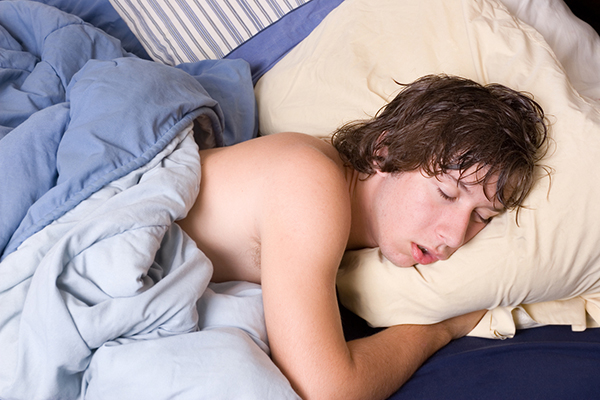
Skipping sleep could have a negative impact on the mental health of college students. Image: iStock/ktaylorg via AFP Relaxnews
Preliminary results from a study published in the journal Sleep, suggested that college students who skip on sleep are more likely to suffer from a range of mental health symptoms.
Led by researchers at the University of Arizona, the new study looked at data gathered from 110,496 college students, including 8,462 varsity athletes.
Participants were asked to report on their sleep habits, with insufficient sleep assessed as the number of nights students did not “get enough sleep so that you felt rested when you woke up.” The researchers assessed mental health by looking at any symptoms experienced within the past 30 days.
After taking into account factors such as age, sex, race and ethnicity, the findings suggested that insufficient sleep was associated with all of the mental health symptoms included in the study.
Moreover, there appeared to be a dose-response relationship between insufficient sleep and mental health symptoms, even among the varsity athletes.
The findings with students with every additional night of insufficient sleep, the risk of experiencing mental health symptoms increased on average by more than 20%, including an increased risk of 21% for depressed mood, 24% for hopelessness, 24% for anger, 25% for anxiety, 25% for desire to self-harm, 28% for functional problems and 28% for suicidal thoughts.
“It was really surprising to see how strongly insufficient sleep was associated with a wide variety of mental health symptoms among college students,” said lead author Thea Ramsey. “Also, it was intriguing that while student-athletes experienced on average fewer nights of insufficient sleep and better mental health, the relationship between insufficient sleep and mental health was as strong or stronger in athletes compared to non-athletes.”
“The fact that sleep health was so strongly related to mental health is important since the majority of college students do not get the recommended amount of sleep needed for optimal health and functioning,” said senior author Michael Grander, PhD. “So, these young adults are not sleeping enough, and not only does that increase their likelihood for things like worse academic performance and health, but it also takes a toll on their mental health as well.”
According to the authors, mental health efforts on college campuses should focus on helping students achieve sufficient sleep, which according to the American Academy of Sleep Medicine should be seven hours or more per night on a regular basis for adults 18 years and older.
The findings will also be presented on June 11, Tuesday, in San Antonio at SLEEP 2019, the 33rd annual meeting of the Associated Professional Sleep Societies LLC. HM/JB
RELATED STORIES:
On-demand game rivals get ready to rumble in the cloud
Future of laptop keyboards looks bleak as screens multiply in Computex 2019